By Sue-Ann Wayow
THE village of Piparo nestled in the hills of the Central Range of Trinidad has several access points.
You can pass through Williamsville, Tabaquite or Gasparillo to reach the historical place located what locals would call “behind God’s back.”
The rural agricultural village is infamous for two things, the eruption of the Piparo Mud Volcano and the home to former notorious drug kingpin Dole Chadee.
It is also the home of renowned music icon Ras Shorty I and the Blackman family recently had a celebration of music at their Piparo ranch in their parent’s honour.
Unlike other historic areas, there are no plaques or monuments to signify anything of great historical value except normal road signs.
There is a T-junction located at the end of a road that can take you to either the volcano or the properties that formerly belonged to Chadee.
The once glorious temple that Chadee built is in ruins. It belongs to one of his sons who has no intention of restoring it, AZP News was told.
One of the roads leads to what was the Piparo Empowerment Centre, another property built by Chadee and confiscated by the State. It was once his ranch fashioned after the 1980s drama Falcon Crest, with orchards trying to replicate the vineyards in the show.
AZP News was told it was earmarked for use by the Children’s Authority to be established as a state-run Children’s Home.
Next to the centre is a more modern facility belonging to Ministry of Social Development – a rehab for drug addicts called New Horizons.
The volcano
February 22, would have made it 26 years since the volcano erupted, spewing mud amass unto streets and houses, causing the evacuation of many, some of whom now live in a Housing Development Corporation (HDC) community in Princes Town.
While it still rumbles, the resident living nearest to it says she has no fear of another eruption.
June 4, would make it 24 years since Chadee was hanged along with eight members of his gang for the murder of a family of four in the nearby Williamsville village. The nine men were executed at the State Prison on Frederick Street in Port of Spain in batches of three on June 4, 5 and 7, 1999. Since then only Anthony Briggs was executed by the State just over a month later. Rulings of the Privy Council have made it difficult for state executions to be carried out.
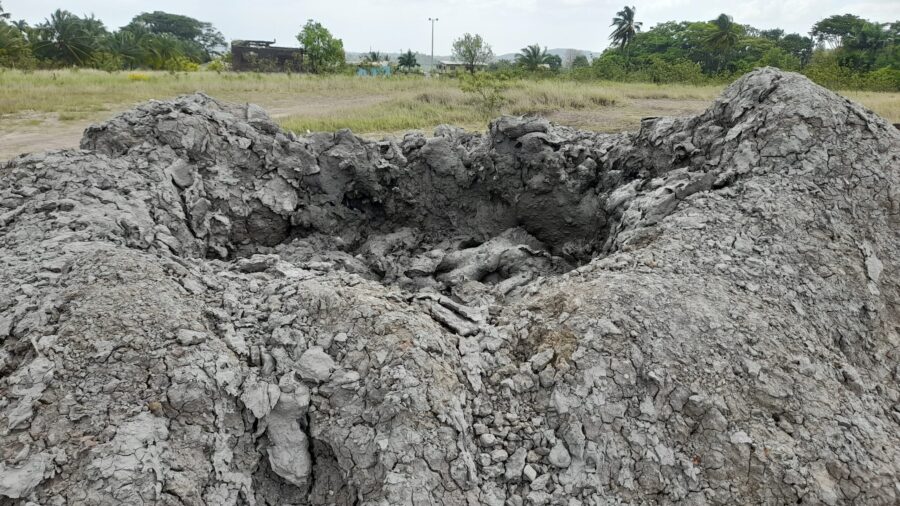
Remnants of Chadee and the volcano are the least of residents concerns as they are worried about their dilapidating roads.
All those who spoke with AZP News during recent visits asked that the problem with their roads be highlighted.
On the volcano end, resides Parbattie Suratt. At 88-years-old, she has lived near the volcano all of her life.
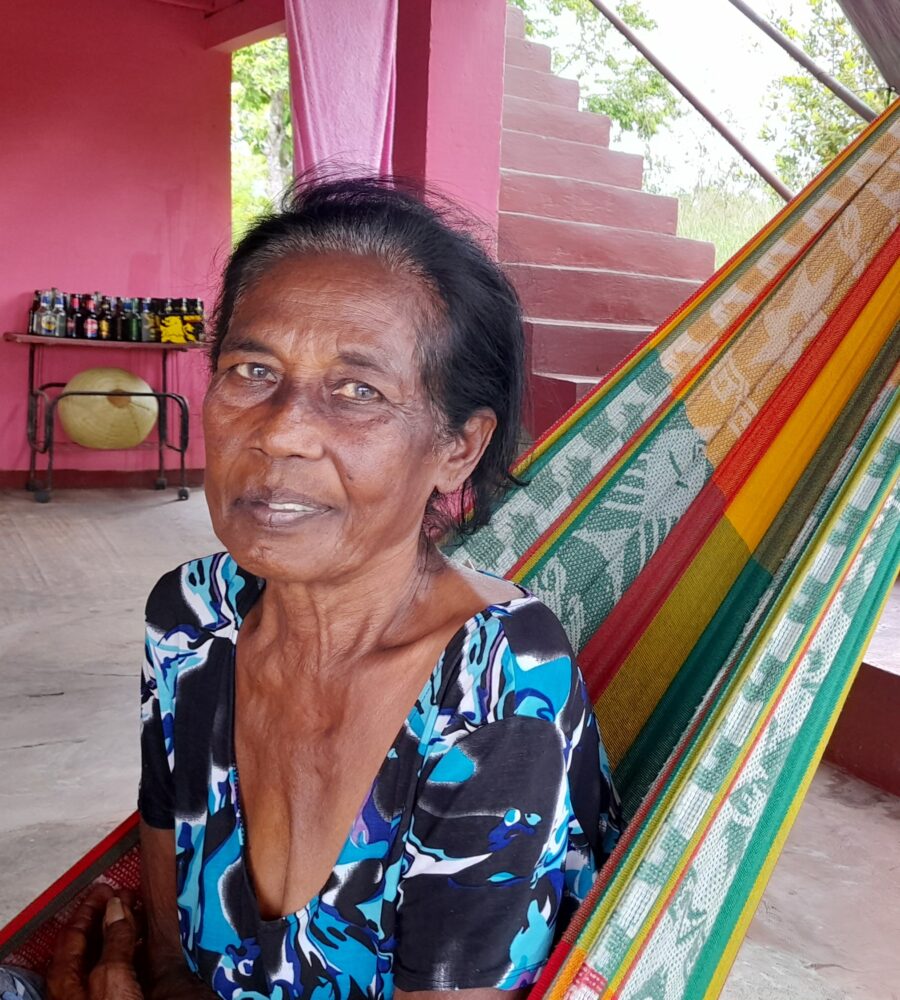
When the volcano erupted, she alone was home and had to scamper for safety along with all her neighbours, some of whom lost their entire homes.
Nothing could have prepared her for that day.
“It came out of the blue,” she said.
More recently, May 27, residents participated in an emergency plan conducted by the Office of Disaster Preparedness and Management (ODPM) adding that they were appreciative of the information.
Suratt remembered that it took her weeks to clean the mud from under her two-storey house and showed AZP News remnants of it that still remained.
Before the eruption, the mud would have been used by residents to lepay (Hindi word for using a mixture of mud and cow dung to cover the ground or walls) their premises.
Today, while rumblings could be heard still every so often, she has no fear of eruption.
But she did say, “We don’t know when it will happen again.”
Along the road that leads to the former Chadee estates, residents still revere the name who was known to many personally in the community and likened him to Colombian drug lord Pablo Escobar.
Two of his sons still live in Piparo and they were described as “cool men” who kept to themselves by residents.
“They move good. They talk and laugh with everybody,” one said.
A 60-year-old man recalled that annually for Christmas, Chadee would pass and give his mother $1,000 adding with a joke that he knew she was not getting any money from his father.
He also recalled that there was a time in Piparo when fear lurked in the village, nobody ventured out after hours and all doors locked and secured.
Now, “everything just cool,” he said.
He also said of Chadee, “He was a good fellow up until he went into the cocaine trade.”
He also advised the sons, “Knowing what has happened to the father, they should not venture into the cocaine trade.”
Another resident said she never knew him personally but understood he was “the high man” in Piparo.
She is a bit more cautious about knowing the Chadee family on a personal level. Another resident said, “Everything normal over here.”
With the renewed call for the activation of the death penalty for convicted murders, most residents agreed that persons should be executed for their crimes.
One resident recalled how she was almost robbed at gunpoint last month at a grocery at 10.30 am.
“There must be a price for killing people,” she said.
The village of Piparo seems to be like an ordinary rural village, one primary school, several small mini-marts, two mosques, two churches and an abandoned temple and two bars.
The residents feel, however, that they should be given more recognition based on their historical contribution both good and bad.
![]()


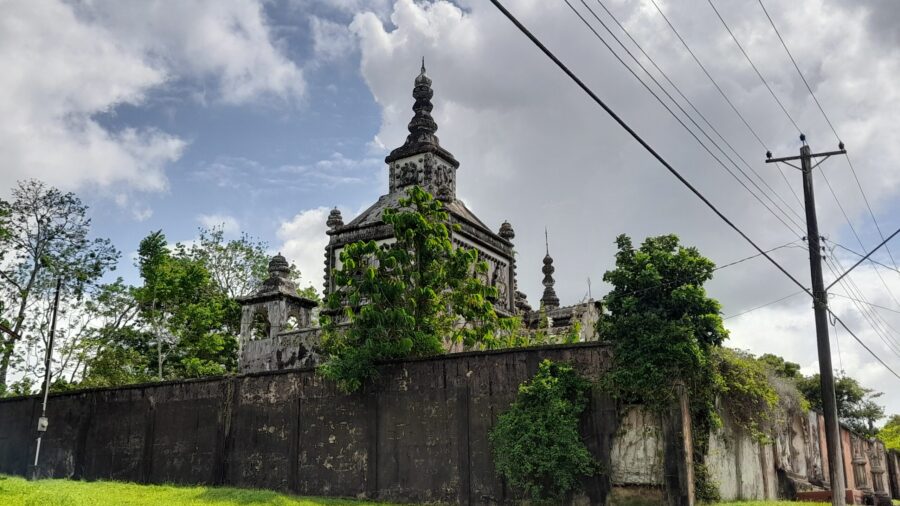


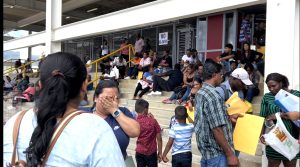

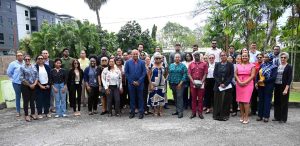


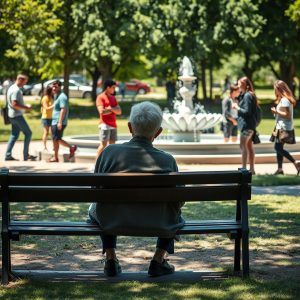

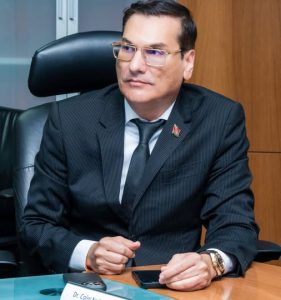
Diana Mahabir-Wyatt
June 4, 2023The writing in this publication is unusually clear and factual
I thoroughly enjoyed the interview with Peter Jamadar